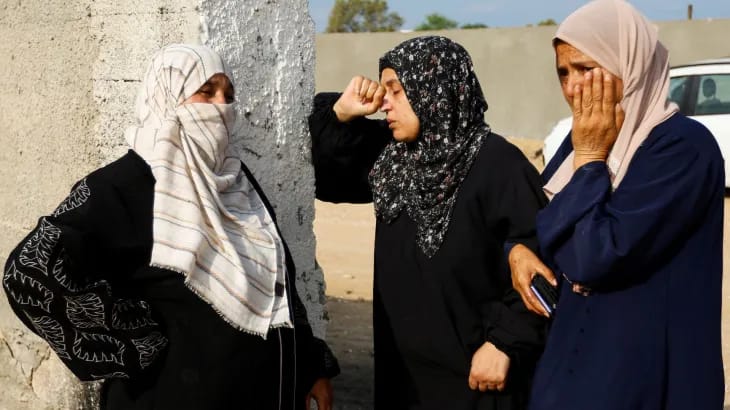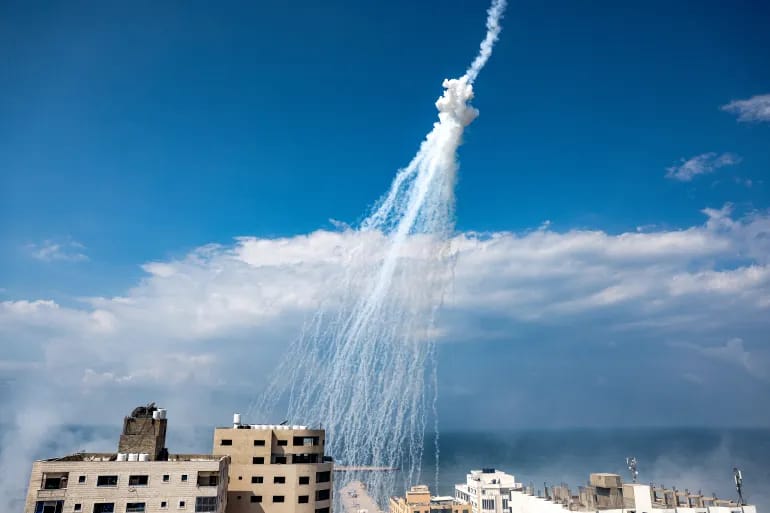In a dire warning, the World Health Organization (WHO) has sounded the alarm over the escalating crisis in the Gaza Strip, emphasizing that the besieged enclave’s healthcare system stands on the brink of collapse. The United Nations health agency has urgently called for immediate humanitarian access to the region, citing the devastating impact of Israel’s blockade and relentless bombardment, which have left Gaza’s hospitals and medical facilities at a “breaking point.” As the situation in Gaza reaches a critical juncture, the international community is increasingly alarmed and demands swift action.
United Nations Issues Urgent Plea for Humanitarian Access
The WHO has issued a clarion call for immediate humanitarian access to Gaza, emphasizing the need to establish a humanitarian corridor. The situation in the Gaza Strip has become dire, with the besieged population facing unimaginable challenges. Overstretched hospitals operate with just a few hours of electricity per day, and essential resources like fuel are rationed to maintain vital services such as intensive care, X-ray, and dialysis units. The United Nations health agency has not only demanded that health workers be allowed into the territory but has also urged the evacuation of the sick and injured, recognizing the urgency of the situation. Additionally, severe shortages of medical supplies pose a grave threat, leaving the lives of over two million residents hanging in the balance.
The WHO stated, “Without the immediate entry of humanitarian aid into Gaza – especially health services, medical supplies, food, clean water, fuel, and non-food items – humanitarian and health partners will be unable to respond to the urgent needs of people who desperately need it.” With every passing hour, the risk to lives grows, making immediate action paramount.
Overwhelmed Hospitals Face Critical Shortages
The International Committee of the Red Cross (ICRC) has also expressed deep concern about the deteriorating situation in Gaza, describing it as “abhorrent.” As power outages persist in Gaza, hospitals face the imminent threat of losing electricity, endangering the lives of newborns in incubators and elderly patients reliant on oxygen. The situation further hinders critical medical procedures, with kidney dialysis and X-rays unable to be performed. In essence, the hospitals risk being transformed into morgues due to the grim lack of electricity.
In response to these dire circumstances, the WHO reported 34 attacks on healthcare services in Gaza since the outset of this crisis. Tragically, 11 WHO health workers have lost their lives, with 16 more sustaining injuries. Additionally, five ICRC workers have been killed in the line of duty. To mitigate this catastrophe, the WHO has called for the immediate opening of the Rafah border crossing, located at the border with Egypt.
The WHO has pledged its readiness to immediately dispatch trauma and essential health supplies to ensure they can reach the Gaza Strip through the Rafah border crossing. Urgent access through this border crossing is deemed essential, allowing the WHO and other humanitarian agencies to rapidly respond to save lives.
International Concern Grows as Gaza Suffers
As this humanitarian crisis unfolds, international concern is mounting. Israel’s intensive bombardment, involving approximately 6,000 bombs, began a week ago in response to an attack by the Hamas group, which caught Israeli security forces off-guard, resulting in the loss of more than 1,300 Israeli lives. Tragically, the ongoing onslaught in Gaza has claimed at least 1,500 Palestinian lives, and thousands more have been injured, further escalating the severity of the situation. Israel is reportedly preparing for a potential ground assault on the enclave, deepening the distress of the Gazan population.
Gaza, with its 30 hospitals, including 13 operated by the Ministry of Health and others privately run, is grappling with an overwhelming crisis. The urgent plea for humanitarian access and international intervention underscores the dire need for immediate relief to prevent a humanitarian disaster of catastrophic proportions. Gaza’s residents are relying on the international community to act swiftly to alleviate their suffering and prevent further loss of life.
















